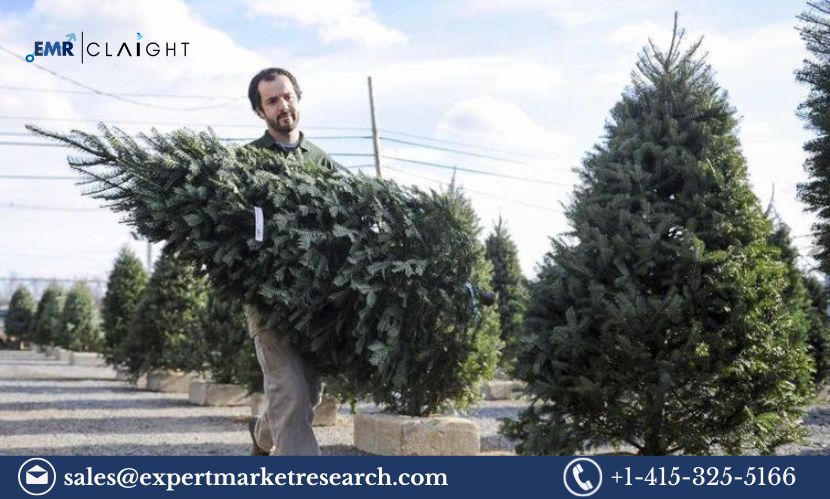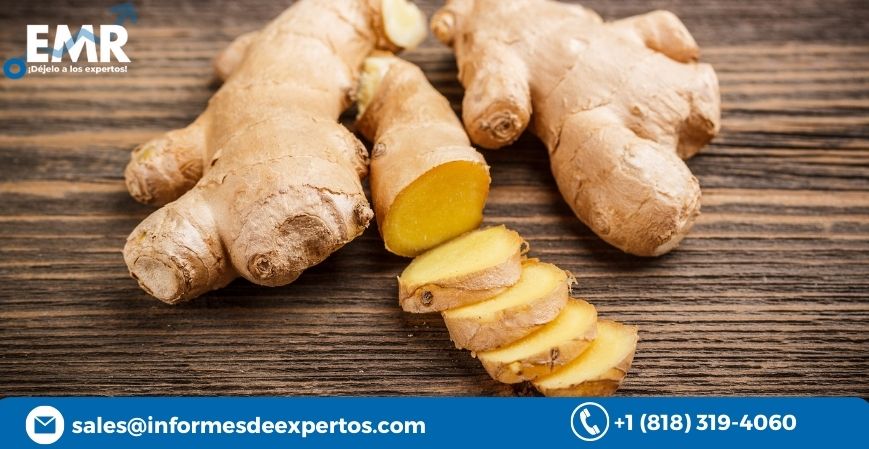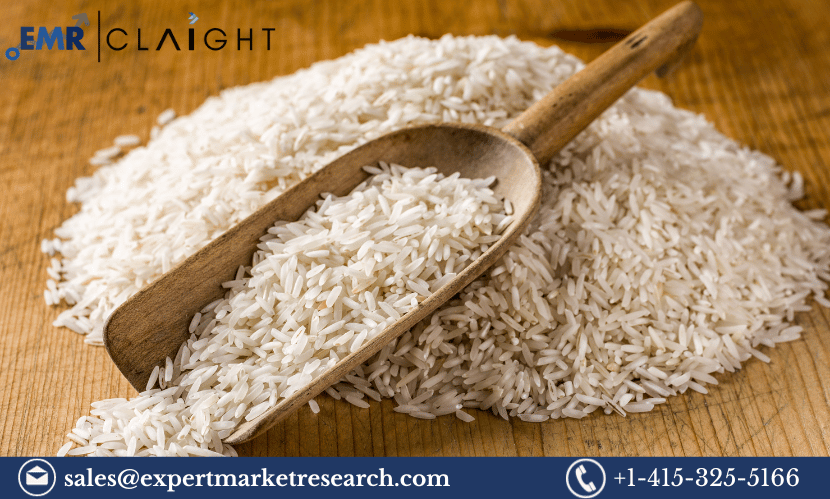According to the report by Expert Market Research (EMR), the global industrial hemp market size attained a value of around USD 5,998.67 million in 2023. Aided by the legalisation and regulatory developments surrounding hemp cultivation and the use of hemp seeds and oil in food and beverage products, the market is estimated to grow at a CAGR of 19% during 2024-2032 to reach a value of nearly USD 28,706.33 million by 2032.
Industrial hemp refers to a specific variety of the Cannabis sativa plant that is cultivated for industrial purposes, such as fibre, seed, and oil production, rather than for recreational or medicinal use. Unlike marijuana, another variety of Cannabis sativa, industrial hemp contains low levels of tetrahydrocannabinol (THC), the psychoactive compound responsible for the “high” associated with marijuana use. Industrial hemp is grown in many countries around the world for its versatile applications across various industries.
The global industrial hemp market is undergoing significant transformations and experiencing notable trends, driven by regulatory changes, technological advancements, shifting consumer perceptions, and the diversification of applications across various industries. Industrial hemp, a versatile and sustainable crop derived from the Cannabis sativa plant species, has garnered increased attention and recognition for its wide range of commercial and industrial uses, including textiles, construction materials, food products, biofuels, and pharmaceuticals.
Get a Free Sample Report with Table of Contents:
https://www.expertmarketresearch.com/reports/industrial-hemp-market/requestsample
One of the most significant trends driving the growth of the global industrial hemp market is the legalisation and regulatory developments surrounding hemp cultivation, production, and distribution in various countries and regions worldwide. Over the past decade, there has been a notable shift towards the liberalisation of hemp laws, with many countries legalising or decriminalising hemp cultivation for industrial and commercial purposes. The passage of the U.S. Farm Bill in 2018 legalised hemp cultivation at the federal level in the United States, opening up new opportunities for hemp farmers, processors, and businesses.
Similarly, countries in Europe, Canada, Australia, and Asia have implemented regulatory frameworks to facilitate the cultivation and commercialisation of industrial hemp, recognising its economic potential, environmental benefits, and versatile applications. As more countries embrace hemp legalisation and regulation, the global industrial hemp market is expected to experience significant growth, driving investment and innovations.
Read Full Report with Table of Contents:
https://www.expertmarketresearch.com/reports/industrial-hemp-market
The global industrial hemp market is witnessing a proliferation of hemp-based products and applications across various industries, driven by increasing consumer demand for sustainable, eco-friendly alternatives and the versatility of hemp-derived materials. Hemp fibres, seeds, and extracts are utilised in the production of textiles, apparel, footwear, and accessories, offering durability, breathability, and antimicrobial properties.
Hemp biomass is processed into biofuels, bioplastics, and construction materials, providing renewable and biodegradable alternatives to conventional materials derived from fossil fuels and non-renewable resources. Moreover, hemp seeds and oil are used in food and beverage products, dietary supplements, and cosmetics, valued for their nutritional content, omega fatty acids, and antioxidant properties.
Additionally, hemp-derived cannabinoids such as cannabidiol (CBD) are gaining popularity in the pharmaceutical and wellness industries for their potential health benefits, including pain relief, stress reduction, and anti-inflammatory properties. As research and development efforts expand and consumer awareness grows, the demand for hemp-based products and applications is expected to increase, driving market growth and diversification in the global hemp industry.
Technological advancements in hemp processing and extraction are driving efficiency gains, product innovation, and cost reductions in the global industrial hemp market. Traditional methods of hemp processing such as hand harvesting and mechanical stripping have been supplemented by modern techniques such as decortication, fibre separation, and solvent extraction, enabling higher yields, improved quality, and increased versatility in hemp-derived products.
Moreover, advancements in extraction technologies such as supercritical CO2 extraction, ethanol extraction, and ultrasonic extraction enable the isolation and purification of specific compounds and cannabinoids from hemp biomass, resulting in high-purity extracts for pharmaceutical, nutraceutical, and wellness applications.
Additionally, the integration of automation, robotics, and digitalization in hemp processing facilities enhances productivity, consistency, and scalability, enabling manufacturers to meet growing demand and regulatory requirements. As technological innovations continue to drive process optimisation and product development, the industrial hemp market is expected to witness continued growth and competitiveness in the coming years.
Sustainable agriculture practices and environmental stewardship are becoming increasingly important considerations in the global industrial hemp market, as consumers, regulators, and stakeholders prioritise environmental sustainability, resource conservation, and carbon neutrality. Hemp cultivation is known for its low environmental impact, requiring minimal water, pesticides, and fertilisers compared to conventional crops such as cotton or soybeans. Moreover, hemp plants have a high carbon sequestration capacity, absorbing CO2 from the atmosphere and mitigating climate change.
Additionally, hemp cultivation improves soil health, biodiversity, and ecosystem resilience, making it a valuable crop for regenerative agriculture and land remediation. Furthermore, hemp-derived products offer eco-friendly alternatives to petroleum-based materials, reducing greenhouse gas emissions, plastic pollution, and reliance on finite resources. As companies adopt sustainable sourcing practices, circular economy principles, and carbon offset initiatives, the demand for sustainably produced hemp products is expected to increase, driving the market development.
The global industrial hemp market is characterised by increasing international trade and market globalisation, as companies seek to expand their presence, access new markets, and leverage economies of scale. Hemp-derived products such as textiles, foods, and supplements are traded globally, with major exporting countries including Canada, China, and the Netherlands. Moreover, international trade agreements, harmonised regulations, and trade liberalisation measures facilitate the movement of hemp products across borders, enabling market access and business opportunities for hemp producers and exporters.
Additionally, multinational corporations and conglomerates invest in hemp cultivation, processing, and distribution operations in multiple countries to diversify supply chains, optimise logistics, and capture market share in emerging markets. Furthermore, strategic partnerships, joint ventures, and mergers and acquisitions enable companies to expand their product portfolios, leverage synergies, and strengthen their competitive positions in the global hemp industry. As globalization continues to shape the dynamics of the industrial hemp market, the demand for standardised quality, supply chain transparency, and regulatory compliance is expected to increase in the coming years.
Market Segmentation
The global industrial hemp market can be divided based on source, product type, application, and region.
Market Breakup by Source
- Conventional
- Organic
Market Breakup by Product Type
- Hemp Seed
- Hemp Fibre
- Hemp Seed Oil
- CBD Hemp Oil
- Others
Market Breakup by Application
- Food and Beverages
- Personal Care
- Animal Care
- Pharmaceuticals
- Textiles
- Construction Materials
- Others
Market Breakup by Region
- North America
- Europe
- Asia Pacific
- LAMEA
Competitive Landscape
The EMR report looks into the market shares, plant turnarounds, capacities, investments, and mergers and acquisitions, among other major developments, of the leading companies operating in the global industrial hemp market. Some of the major players explored in the report by Expert Market Research are as follows:
- Hemp Inc
- Manitoba Harvest Hemp Foods
- Bombay Hemp Company Private Limit
- HempFlax Group B.V.
- HPS Food & Ingredients Inc.
- Unrivaled Brands, Inc
- Others
About Us
Acquire unparalleled access to critical industry insights with our comprehensive market research reports, meticulously prepared by a team of seasoned experts. These reports are designed to equip decision-makers with an in-depth understanding of prevailing market trends, competitive landscapes, and growth opportunities.
Our high-quality, data-driven analysis provides the essential framework for organisations seeking to make informed and strategic decisions in an increasingly complex and rapidly evolving business environment. By investing in our market research reports, you can ensure your organisation remains agile, proactive, and poised for success in today’s competitive market.
Don’t miss the opportunity to elevate your business intelligence and strengthen your strategic planning. Secure your organisation’s future success by acquiring one of our Expert Market Research reports today.
Media Contact:
Company Name: Claight Corporation
Contact Person: Emily Jacks, Corporate Sales Specialist – U.S.A.
Email: sales@expertmarketresearch.com
Toll Free Number: +1-415-325-5166 | +44-702-402-5790
Address: 30 North Gould Street, Sheridan, WY 82801, USA
Website:www.expertmarketresearch.com



